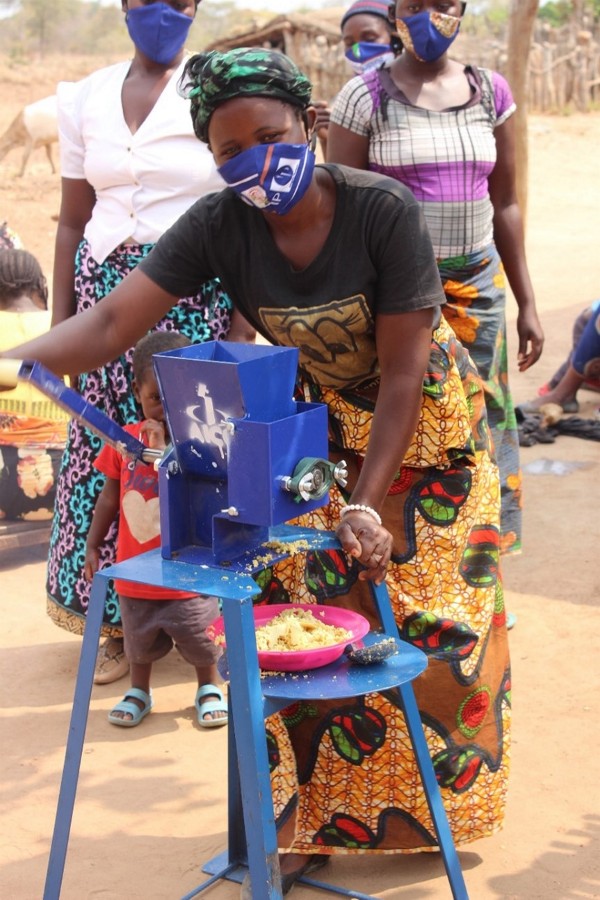Women farmers in Malawi welcome new technology
Date:
Smallholder farming is often labor intensive and has limited technology, which negatively impacts productivity. Reducing and redistributing time spent by women at the household level on unpaid care and domestic work is key to improving opportunities for productive participation.

UN Women's Economic Empowerment of Women in Malawi through the Climate Smart Agriculture (CSA) project is supporting rural farmers to increase productivity and profitability of the groundnut value chain. This multi-country project was implemented in Malawi, Nigeria, South Africa and Uganda with funding from Standard Bank of South Africa. In Malawi, the project is being implemented in three districts, Lilongwe rural, Mchinji and Mzimba North in partnership with the Africa Institute for Corporate Citizenship (AICC) and Market Link and Support (MaLS).
Under the Climate Smart Agriculture project, reducing the workload associated with crop processing has enabled women to produce for market demands. Women traditionally sold small quantities of groundnuts due to the intense labour required for manual processing. AICC linked farmers to private sector operators with mechanised groundnut processing manual machines, which are producing higher quality groundnuts and at higher market prices.
The project introduced groundnut shellers and strippers to some cooperatives. The shellers have reduced the breakage percentage to 4 per cent. By using the shellers, farmers have also learned not to not to sprinkle water on dry pods when shelling. Minimizing moisture is the single most important factor in controlling aflatoxin contamination on groundnuts. The strippers used in threshing groundnuts from plants have been helpful as they save farmers from the monotonous task of threshing manually. Usually it would take three days to harvest one 50kg bag of groundnuts but with strippers a farmer is able to do two bags per hour. The strippers are 96 per cent efficient.
Biyata Sato is a farmer would spend up to four hours of her day shelling. She would wake up at 4 am doing other household chores to try to make up for time spent shelling. Thanks to UN Women’s programme, she is currently using a stripper and grinder in Kamangadazi village, Chindi, Mzimba. “I like this technology because it is not labor intensive. This technology helps us to save time to do other equally important chores to improve our livelihoods,” said Sato.
AICC partnered with private companies producing tailor made equipment compatible with rural farmer business organizations that operate manually. “So far the involvement of the private sector has contributed significantly towards unlocking the potential of rural women to actively participate in value addition for economic empowerment”, said Clara Anyangwe, UN Women Representative in Malawi.
“UN Women Malawi has helped us learn new technologies that are benefiting us. They have trained us in good farming practices” said Sato. “We also learned about value addition and we will be making different groundnut products. This is the first time that we have made profits as individuals,” she added.